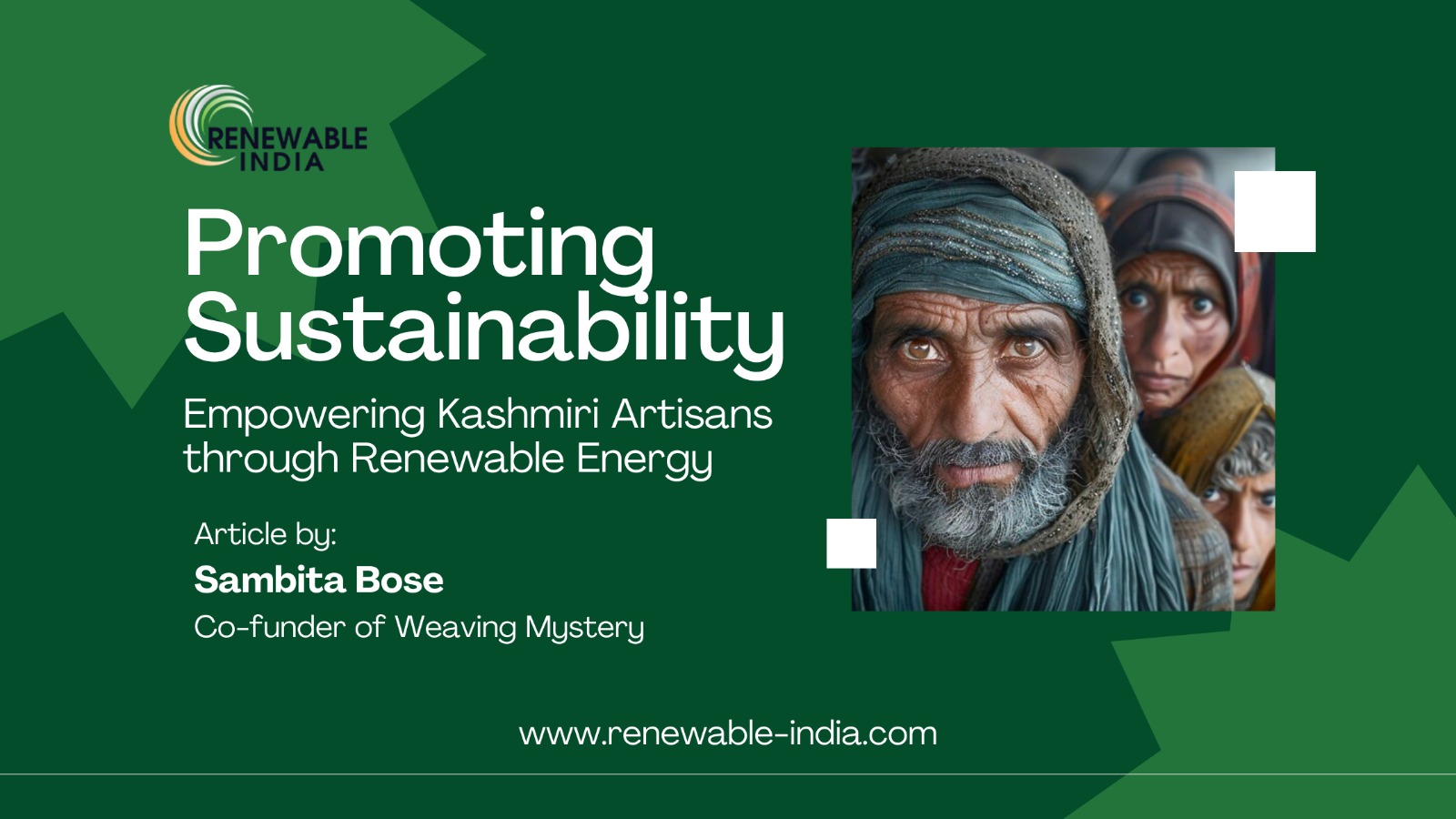
Kashmir or also known as the paradise on earth situated in the shades of Himalayas is a place which will attract any tourist with scenic beauty and history. Connecting these hues and motifs is the intricate workmanship of the kashmiri artisans, replete with experience inputted for generations. These artists from Namda rugs to the Pashmina shawls are weavers who were the guardians of art Kashmir has always cherished.
But for the present days, the traditional crafts of the Kashmir valley have been threatened in numerous ways; the climatic variation, shift from handicrafts industry and arrival of mechanical goods are some of them. Despite these challenges, the new generation sustainable development projects have started to take place that are helping the marginalized artisans of Kashmir and mend to sustain the cultural heritage of the region.

Some of the best practices that have been implemented are the promotion of renewable energy sources in original handicrafts of Kashmir. By leveraging the power of solar energy and wind, these workshops are saving on carbon footprints and bringing more sustainability to this type of craft. Renewable energy sources such as solar power and wind power now cover the region to ensure adequate electricity supply to power the complex process of Namda making, carpet weaving, and shawl manufacturing.
This transition to renewable power is a positive move in environmental preservation and also as a positive outcome the artisans are empowered. These workshops are a major beneficiary of this strategy as they decrease their dependence on conventional and most often sporadic sources of electric power hence enabling the artisans work all through without intermission due to power surges.
In addition, renewable energy has impacted the local community caused by adoption of renewable energy. Because the workshops are moving towards producing as many of their own components as possible, they are also able to put more of their own money into such sustainable practices as proper waste disposal or efforts to conserve water. This sustainable development is not only being attained through the management of natural resources but is also working to enhance the Swahili social structure.
Parallel to this change, the people of both regions seem to be also adopting sustainable sources of energy, most of the Kashmiri artisans are also practicing sustainable fashion. The supply chain of fabrics, the utilization of locally sourced organic fabrics, biodegradable dyes, and conscious efforts from the designers in avoiding water pollution and wastage can vouch for these artisans being eco-conscious.
These sustainable practices are already being felt on the ground realities within Kashmir. Namda rugs, Kashmiri carpets, and Pashmina shawls are now becoming popular because of these aware customers who not only want to possess those products but immediately become socially relevant products. This has not only revived the economy of the artisans of Lucknow but has also given a new generation to learn a new way to follow the tradition.
With this in view, the present paper concluded that the future of Kashmir’s carved Arts depends on the capabilities of the KASHMIRI artisans through use of renewable energy and sustainable use of both human and natural resources. The strategy within these projects is not just about preserving the environment but also preserving the mesmerizing beauty of art of Kashmir.
In the words of a Kashmiri artisan “Our craft is not just a source of income but a message of hope for our people We are not only looking to the future sustenance but also paying tribute to patrons who used to exist in the past”.
It is these values that will ensure that those spinners, weavers, and dyers of Kashmir continue to prosper, and their craft remain among the shining lights of the craft world.
Sambita Bose is the Co-founder of Weaving Mystery, a leading home decor brand offering an exclusive range of hand-woven products inspired by the rich heritage of Kashmir. Elevating homes with timeless elegance, Weaving Mystery presents a collection that embodies the essence of ancient aristocratic decor, transporting you to a palace-like ambiance within your own space.
She has expressed her confidence in Weaving Mystery’s range of handcrafted home decor products which captivate enthusiasts of handmade goods, resonating with their appreciation for exceptional craftsmanship. The brand Weaving Mystery is poised not only to capture the hearts of but also to make a mark on the global stage.
India at a Crossroads: The pivotal role of Renewable Energy and Sustainability in the Post-2024 era
Leave a Reply